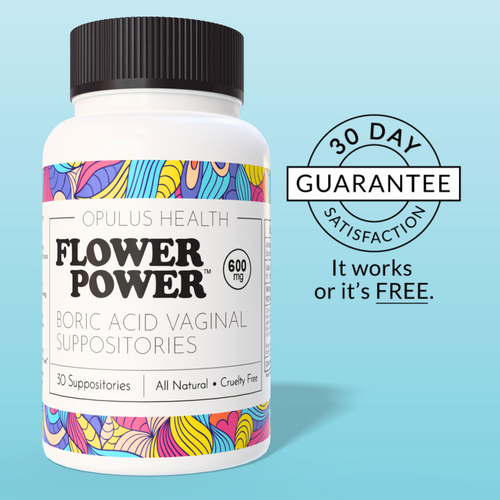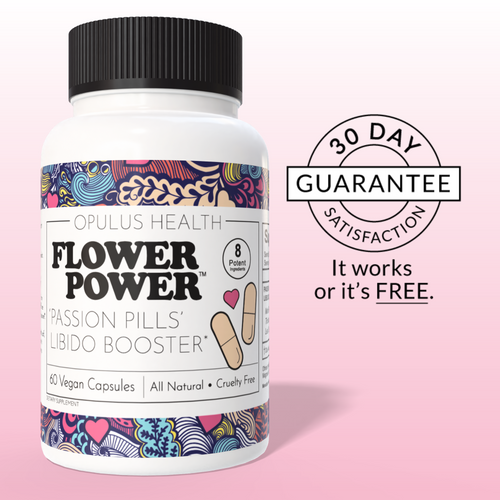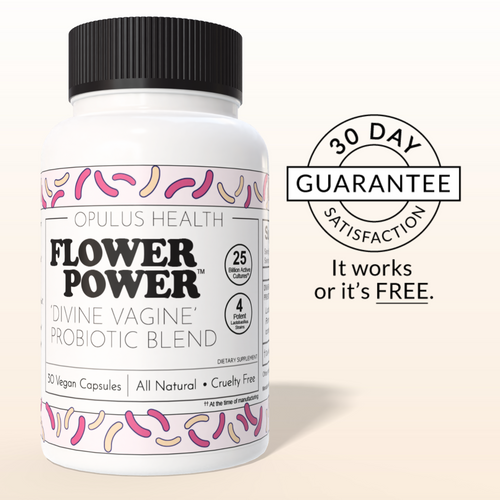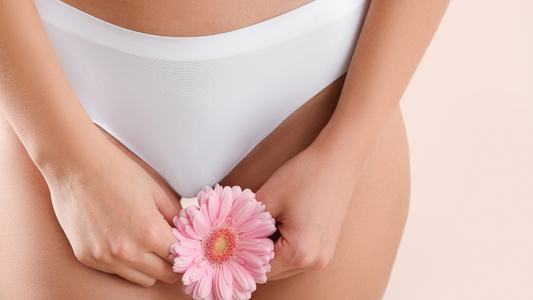Menopause is a natural transition in a woman’s life, but it often brings along symptoms that can feel anything but natural. Among the most common—and sometimes most disruptive—are vaginal dryness and hot flashes. These two experiences are often discussed separately, yet many women notice that they appear around the same time. Are they connected? Can one symptom make the other worse?
In this guide, we’ll break down what causes vaginal dryness, what triggers hot flashes, and whether these two hallmark menopause symptoms share a deeper link. We’ll also explore natural, hormone-free strategies to manage both so that you can feel more comfortable, confident, and empowered during this chapter of life.
What Causes Vaginal Dryness?
Vaginal dryness isn’t just a matter of discomfort—it’s a clear sign of changes happening inside your body. While it can affect women at different stages of life, it is especially common during perimenopause and menopause. Here’s why:
Estrogen Decline and Vaginal Health
Estrogen plays a key role in maintaining vaginal lubrication, elasticity, and tissue health. When estrogen levels begin to drop, the vaginal walls may become thinner, drier, and less flexible. This condition is known as genitourinary syndrome of menopause (GSM), and it’s one of the leading causes of vaginal dryness.
Lifestyle Factors That Worsen Dryness
-
Smoking: Nicotine can restrict blood flow, reducing natural lubrication.
-
Stress: Chronic stress alters hormone balance, often intensifying dryness.
-
Certain Medications: Antihistamines, antidepressants, and cancer treatments can contribute to vaginal dryness.
-
Dehydration: Not drinking enough water reduces the body’s overall hydration, including vaginal tissues.
Other Health Conditions
Vaginal dryness may also stem from non-menopause causes, such as thyroid imbalances, autoimmune diseases, or post-surgical changes like a hysterectomy.
What Causes Hot Flashes?
Hot flashes are another defining symptom of menopause. They are characterized by sudden waves of heat, often followed by sweating, flushing, and sometimes chills. But what causes them?
Hormonal Fluctuations
The leading cause of hot flashes is a drop in estrogen. This hormone doesn’t just affect reproductive health—it also influences the hypothalamus, the part of the brain that regulates body temperature. When estrogen levels decline, the hypothalamus becomes more sensitive, triggering sudden hot flashes even when there’s no real temperature change.
Common Triggers
-
Caffeine and alcohol
-
Spicy foods
-
Emotional stress
-
Heat and humidity
-
Lack of sleep
Beyond Menopause
While most women experience hot flashes during perimenopause and menopause, some medical conditions or medications can also trigger them.
Are Vaginal Dryness and Hot Flashes Related?
The short answer: yes, they are related—but not in a direct “cause-and-effect” way. Both symptoms stem from the same underlying issue: declining estrogen levels during menopause.
The Shared Root Cause
-
Estrogen decline contributes to both reduced vaginal lubrication and hot flash episodes.
-
Not all women experience both symptoms equally—genetics, lifestyle, and overall health play a role.
Why Some Women Experience Both (and Others Don’t)
Some women may notice dryness without hot flashes, or vice versa. The severity and presence of symptoms often depend on hormone sensitivity, individual physiology, and environmental triggers.
Managing Vaginal Dryness During Menopause
The good news is that vaginal dryness can be managed—often without hormones or invasive treatments.
Hydration and Diet
-
Drink at least 8 glasses of water daily to maintain tissue hydration.
-
Add foods rich in omega-3 fatty acids (like salmon and flaxseeds) and phytoestrogens (like soy and chickpeas).
Natural Moisturizers and Lubricants
Over-the-counter lubricants can provide temporary relief during intimacy, while vaginal moisturizers offer longer-lasting hydration. Look for water-based, paraben-free options to avoid irritation.
Plant-Based Supplements
Supplements like She Juicy™ support vaginal health with natural ingredients like Slippery Elm Bark, which nourishes the vaginal mucosa and promotes natural lubrication. Unlike hormone-based therapies, these solutions are safe, vegan, and hormone-free.
When to Seek Medical Advice
If dryness causes pain, bleeding, or frequent infections, consult a healthcare provider. You may benefit from specialized treatments such as vaginal laser therapy or prescription solutions.
Coping With Hot Flashes Naturally
Managing hot flashes often requires a multi-pronged approach.
Lifestyle Adjustments
-
Dress in layers for quick temperature regulation.
-
Keep your bedroom cool at night.
-
Reduce alcohol, caffeine, and spicy foods.
Exercise and Mindfulness
Regular physical activity and stress-reducing practices like yoga, meditation, or deep breathing can minimize hot flash intensity.
Supplements and Herbal Remedies
Some women find relief with plant-based remedies like black cohosh, red clover, or evening primrose oil. Always consult your doctor before starting new supplements.
Holistic Menopause Relief: Addressing Both Symptoms Together
Since both vaginal dryness and hot flashes share estrogen decline as a common factor, holistic strategies can ease both at once.
-
Focus on balanced nutrition and hydration.
-
Maintain a consistent exercise and wellness routine.
-
Use natural, hormone-free supplements that target multiple aspects of menopause discomfort.
-
Prioritize mental well-being—stress often worsens both dryness and hot flashes.
Flower Power®’s mission aligns with these strategies: safe, natural, hormone-free solutions that empower women to feel like themselves again.
FAQs: Vaginal Dryness, Hot Flashes, and Menopause
Can you have vaginal dryness without hot flashes?
Yes. While both symptoms share hormonal causes, some women only experience one.
Do hot flashes always mean you’re in menopause?
Not necessarily. They can also occur due to certain medications, stress, or medical conditions.
What is the best natural remedy for vaginal dryness?
Supplements with ingredients like Slippery Elm Bark can help restore natural moisture. Other options include natural lubricants and moisturizers.
How long do hot flashes and vaginal dryness last?
They typically last throughout perimenopause and early menopause, but symptoms may ease over time. Some women experience them for years, while others see improvement sooner.
Can I treat vaginal dryness and hot flashes at the same time?
Yes. Holistic, lifestyle-based strategies often improve both. A mix of hydration, stress management, diet, and natural supplements can make a difference.
In Conclusion
Vaginal dryness and hot flashes may feel overwhelming, but they don’t have to control your life. Both symptoms are rooted in the same hormonal changes of menopause, and with the right approach, you can manage them naturally and safely.
At Flower Power®, we believe that every woman deserves to feel comfortable, sexy, and confident—without shame or compromise. If you’re ready to take charge of your menopause journey, explore solutions like She Juicy and discover how natural, hormone-free support can help you feel juicy again.

















